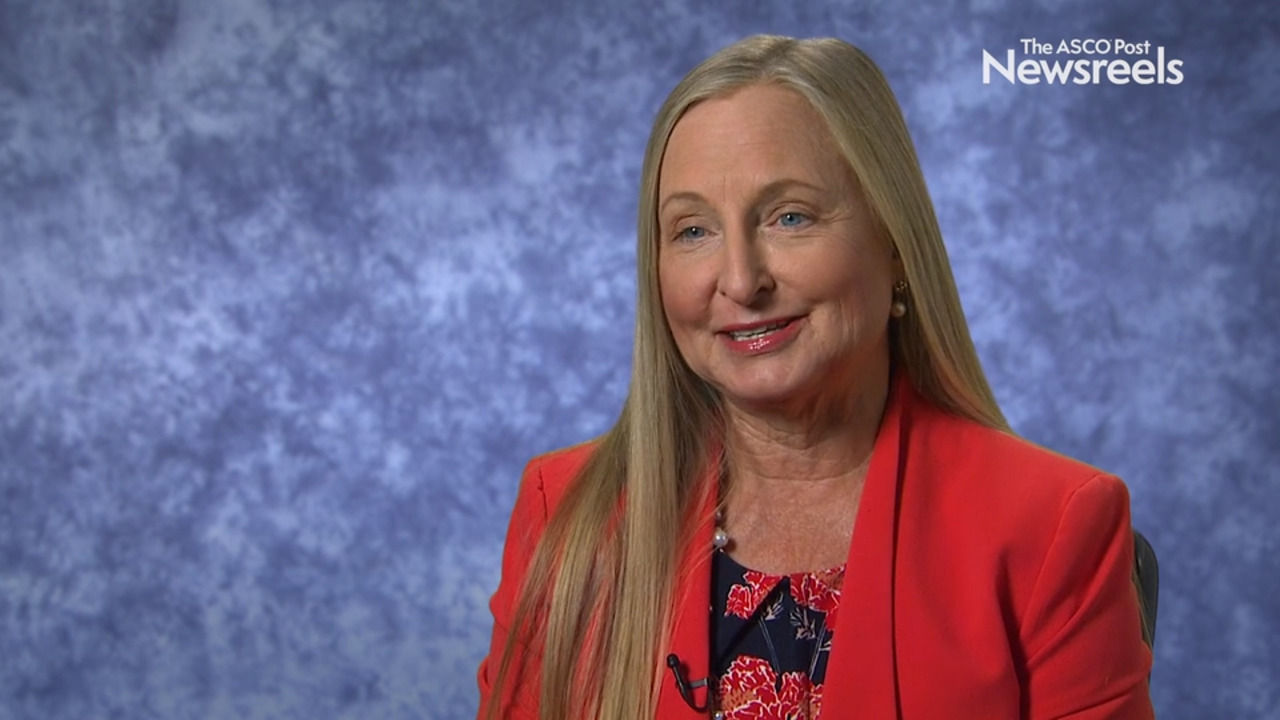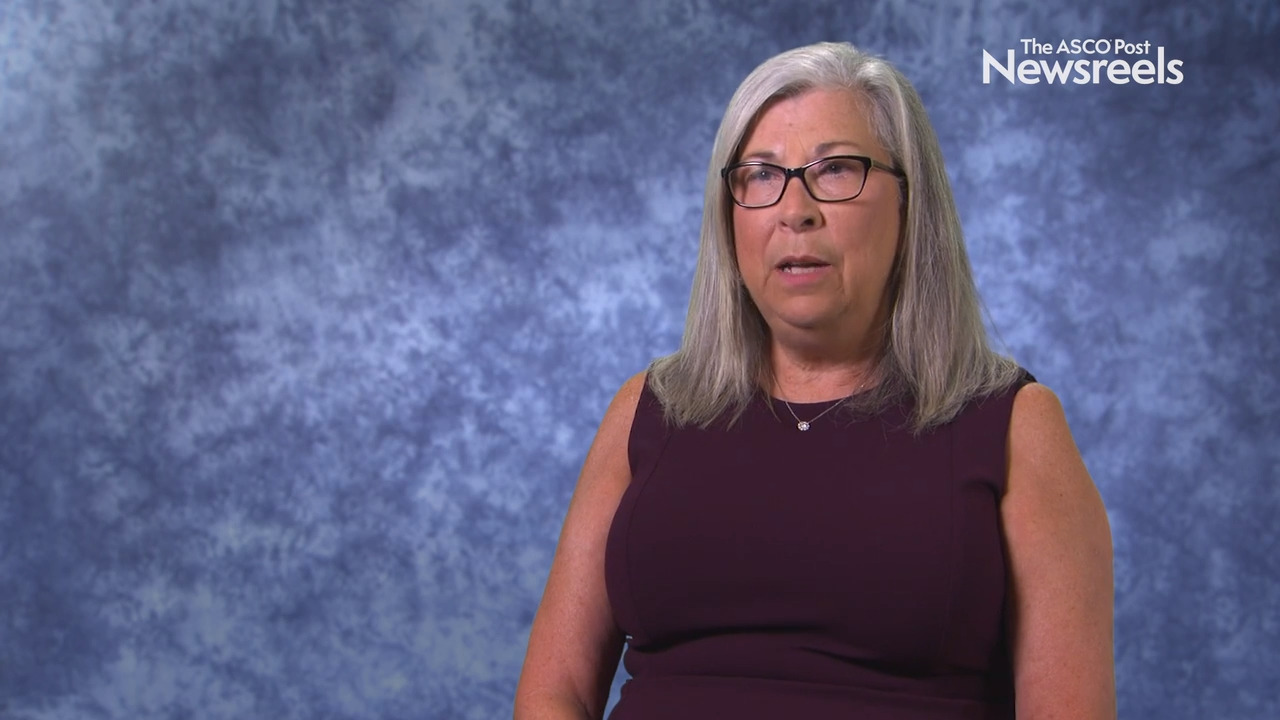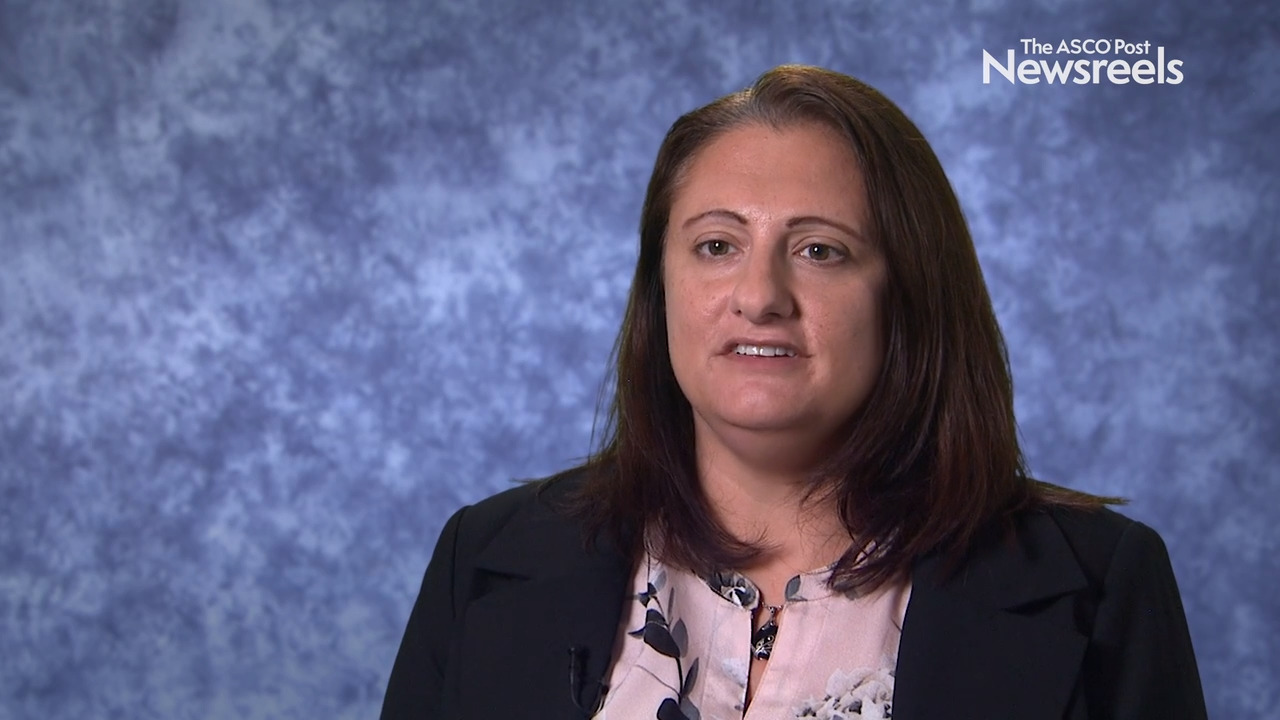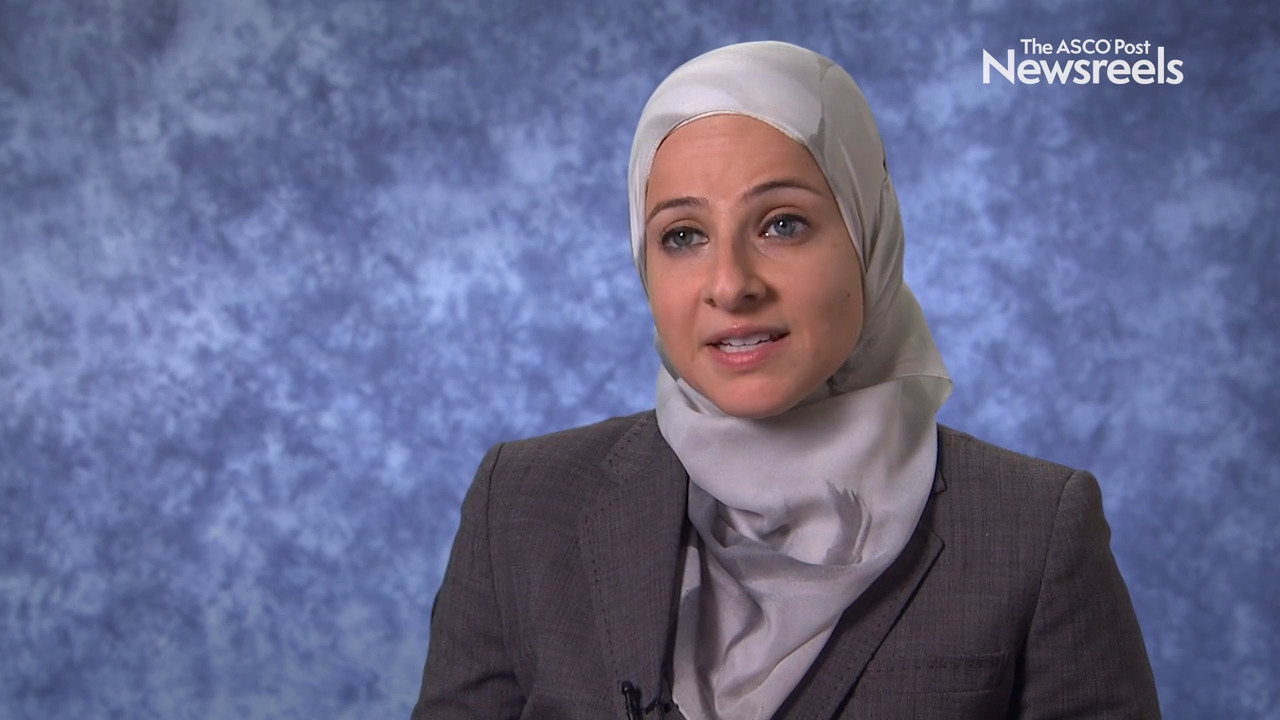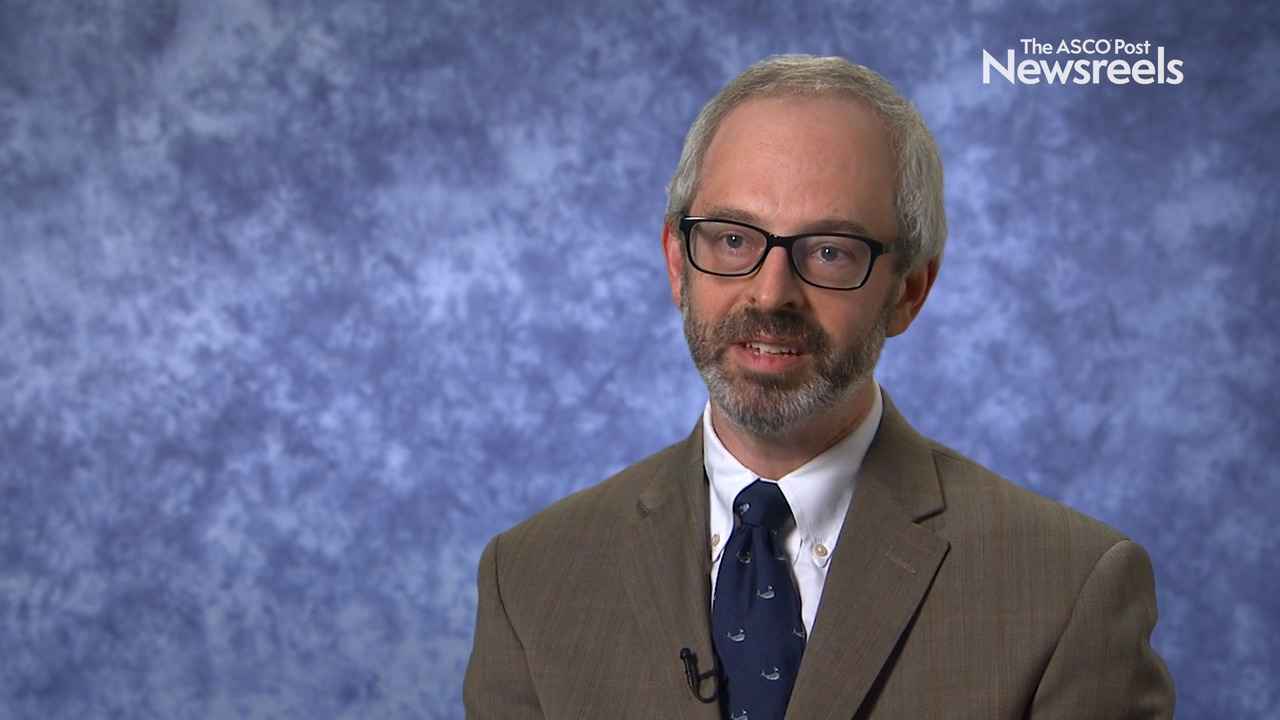Cristina Merkhofer, MD, MHS, on NSCLC: Survival Impact of Taking Part in a Clinical Trial
2019 Quality Care Symposium
Cristina Merkhofer, MD, MHS, of Fred Hutchinson Cancer Research Center, discusses study results showing that for patients with metastatic non–small cell lung cancer at her institution, enrolling in a therapeutic drug clinical trial was associated with a 47% lower risk of death, compared with not taking part in a trial (Abstract 137).
Linda D. Bosserman, MD, of City of Hope, discusses guidelines vs pathways, how to personalize pathways, integrated diagnostics, supportive care regimens, and financial guidance for patients with cancer.
Grace C. Hillyer, EdD, MPH, of Columbia University Mailman School of Public Health, discusses the many barriers to enrolling patients in clinical trials, most notably different attitudes toward and perceptions about research studies among clinicians vs patients. Her findings point to the need for better communication between the two groups and more patient input (Abstract 170).
Angela M. Stover, PhD, of the University of North Carolina at Chapel Hill, discusses ASCO’s initiative to develop patient-based performance measures for assessing and managing symptoms. The measures have made substantial differences in reducing nausea, constipation, and insomnia (Abstract 173).
Nadine Housri, MD, of the Yale School of Medicine, talks about a new paradigm in sharing knowledge from tumor board discussions at NCI-designated comprehensive cancer centers, with community oncologists on themednet.org. Currently, thoracic, breast, and GI cancers are included, with plans to expand the scope (Abstract 272).
Cary P. Gross, MD, of Yale School of Medicine, discusses the challenges of implementing pathways and guiding patient decision-making on treatment.
